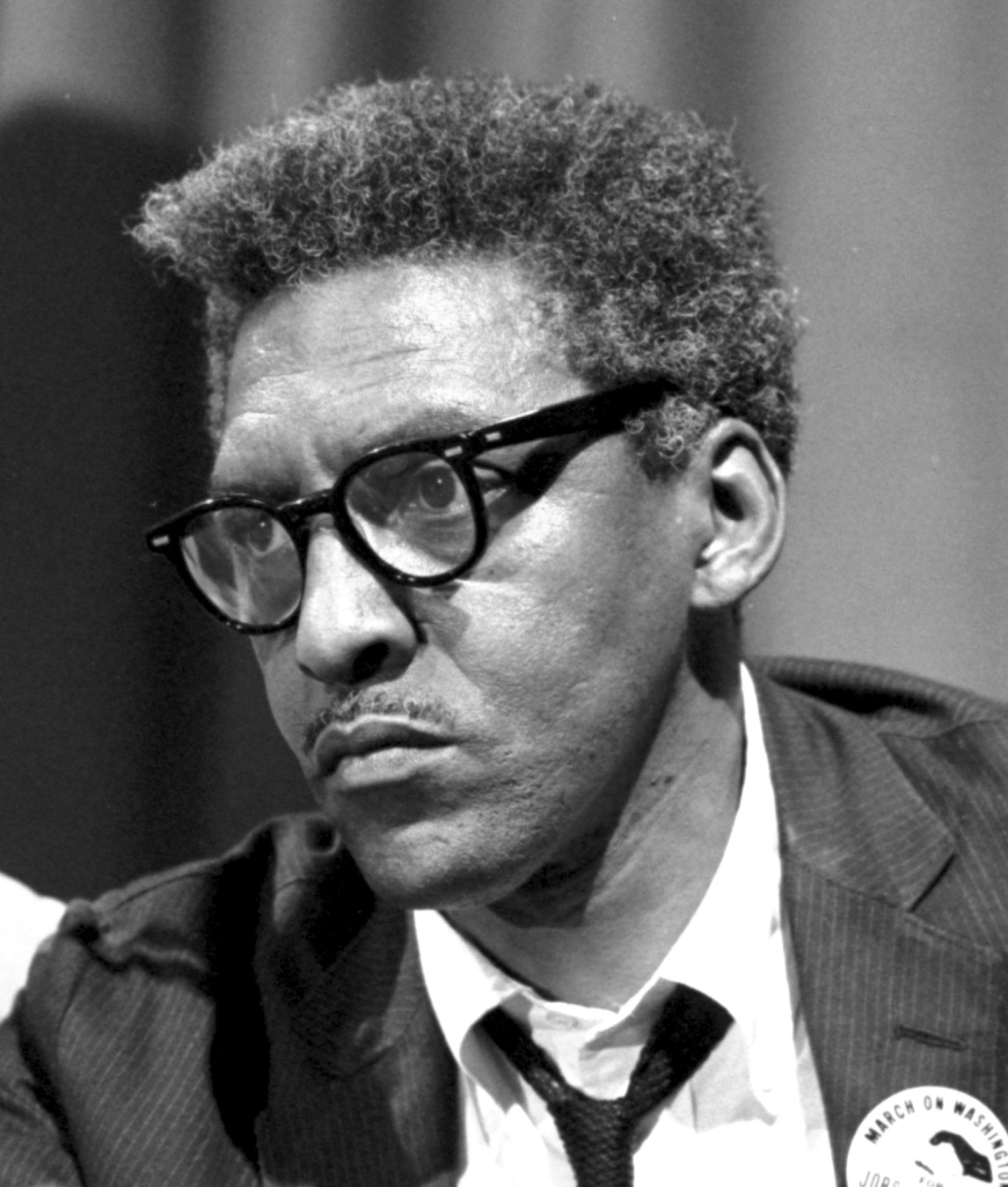Bayard Rustin was an American leader in social movements for civil rights, socialism, nonviolence, and gay rights.
In the pacifist groups Fellowship of Reconciliation and the War Resisters League , Rustin practiced nonviolence. A member of the Communist Party before 1941, he collaborated with A. Philip Randolph on the March on Washington Movement in 1941 to press for an end to discrimination in employment. He was a leading activist of the early Civil Rights Movement, helping to initiate a 1947 Freedom Ride to challenge, with civil disobedience, the racial segregation issue related to interstate busing. He recognized Martin Luther King, Jr.'s leadership, and helped to organize the Southern Christian Leadership Conference to strengthen King's leadership. Rustin promoted the philosophy of nonviolence and the practices of nonviolent resistance, which he had observed while working with Mahatma Gandhi's movement in India, and helped teach Martin Luther King, Jr. about nonviolence.Rustin became a leading strategist of the Civil Rights Movement from 1955 to 1968. He was the chief organizer of the 1963 March on Washington for Jobs and Freedom, which was headed by A. Philip Randolph, the leading African-American labor-union president and socialist. Rustin also influenced young activists, such as Tom Kahn and Stokely Carmichael, in organizations such as the Congress on Racial Equality and the Student Nonviolent Coordinating Committee .After the passage of the civil rights legislation of 1964–65, Rustin focused attention on the economic problems of working-class and unemployed African Americans, suggesting that the civil-rights movement had left its period of "protest" and had entered an era of "politics", in which the black community had to ally with the labor movement. Rustin became the head of the AFL–CIO's A. Philip Randolph Institute, which promoted the integration of formerly all-white unions and promoted the unionization of African Americans. The Institute under Rustin's leadership also advanced and campaigned for A Freedom Budget for All Americans, linking the concepts of racial justice with economic justice. Supported by over 200 prominent civil-rights activists, trade unionists, religious leaders, academics and others, it outlined a plan to eliminate poverty and unemployment in the United States within a ten-year period. Rustin became an honorary chairperson of the Socialist Party of America in 1972, before it changed its name to Social Democrats, USA ; Rustin acted as national chairman of SDUSA during the 1970s. During the 1970s and 1980s, Rustin served on many humanitarian missions, such as aiding refugees from Communist Vietnam and Cambodia. At the time of his death in 1987, he was on a humanitarian mission in Haiti.
Rustin was a gay man who had been arrested early in his career for engaging in public sex. Rustin's sexuality, or at least his criminal charge, was criticized by some fellow pacifists and civil-rights leaders because it detracted from his effectiveness. Rustin was attacked as a "pervert" or "immoral influence" by political opponents from segregationists to conservative black leaders from the 1950s through the 1970s. In addition, his pre-1941 Communist Party affiliation when he was a young man was controversial, having caused scrutiny by the FBI. To avoid such attacks, Rustin served rarely as a public spokesperson. He usually acted as an influential adviser behind the scenes to civil-rights leaders. In the 1980s, he became a public advocate on behalf of gay and lesbian causes.
President Ronald Reagan issued a statement on Rustin's death in 1987, praising his work for civil rights and his shift toward neoconservative politics over the years. On November 20, 2013, President Barack Obama posthumously awarded Rustin the Presidential Medal of Freedom.
✵
17. March 1912 – 24. August 1987
